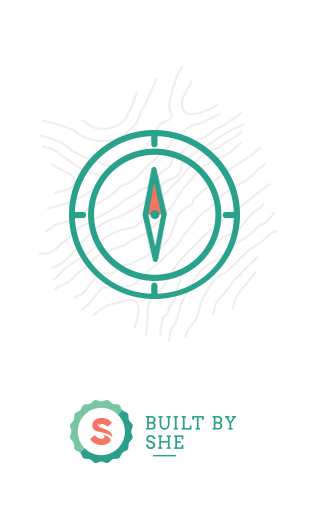Standing Up
Arguably, this is a great time to be a woman pursuing entrepreneurship. The alarming and shocking statistics we cite may show an intolerable imbalance, but there is a heightened consciousness and level of conversation going on that feels positive.
What does it mean to be a woman entrepreneur in 2017?
Let’s finally talk about gender because it has been in the news everywhere lately. There are brave women emerging from hidden places to share their experiences such as Ellen Pao at Kleiner Perkins, Susan Fowler from Uber, Whitney Wolfe from Tinder, and dozens of others (Rachel Renock, Katrina Lake, Susan Wu, Gesche Haas, Sarah Kunst, Tracy Chou, Lindsay Meyer to name just a few) speaking up about harassment when fundraising in the Valley or harassed/discriminated against in the workplace. There is a growing laundry list of high profile notables (some of whom I really respected prior to the unearthed stories) such as Binary Capital’s Justin Caldbeck and the harassment scandal, 500 Startups’ Dave McClure and misconduct, Snap’s Evan Spiegel and his frat boy comments, Uber’s Emil Michael, Ed Baker and Travis Kalanick’s and their complex entanglements, and Upload VR’s rampant boy’s club. It doesn’t help that there are news breaks of prominent industry players and their personal lives of assaults and wife beating from Nin Venture’s Gurbaksh Chahal and Cuberon’s Abhishek Gattani. And of course Google’s James Damore and his recent diversity memo.
Venture capital power, as we all know, is currently dominated by men. TechCrunch’s latest study found that only 7% of partners in the top 100 VC firms were women. Not only does this create the challenge of women founders pitching to a room where the partners may or may not relate to them and potentially the concept being sold, but this imbalance also leads to situations where investors and advisors cross the line, leaving female founders vulnerable.
“I felt like I had to tolerate it because this is the cost of being a nonwhite female founder,” said Ms. Meyer – NY Times article
There is a survey of 200 senior level women in the Silicon Valley, the Elephant in The Valley that focuses on feedback and promotion, inclusion, unconscious biases, motherhood, and harassment/safety. It found that nearly all of the 200-plus senior women in tech who responded had experienced sexist interactions.

We even hear it directly from the leadership of the most prestigious venture-capital firms. When asked by a Bloomberg reporter why the firm had no female investing partners,
“We look very hard…(we) hired a young woman from Stanford who’s every bit as good as her peers…what we’re not prepared to do is lower our standards.”
– Michael Moritz, Chair of Sequoia Capital
Built By She is founded on the passionate mission to improve the number of venture funded women-owned companies. So, these mounting indices of continued, blatant sexism, discrimination and harassment must be acknowledged.
Truthfully, I have never been more acutely aware of societal forces, unconscious biases, and gender inequalities until the last two years. Granted, the intense political strife going on as well as related conversations on topics of bigotry, discrimination, and female marginalization are fueling momentum. I grew up in a 75% female household. I was an independent latch key kid, part of the empowering Girl Scouts organization as a youngster, a member of Girls’ League in high school, a sorority sister for four years in college, now working at a 100% woman owned company, and an attendee at the last three TED Women conferences. Because I was probably part of the naïve and idealistic cohort of young women in the 90’s/00’s, I’ve always felt that girls had a seat at the table and never really analyzed the dynamics too intently. Luckily, I don’t recall any specific personal experiences with bias or discrimination, even when I worked in tech in the Silicon Valley for a stint. There are just a few minor inappropriate situations that come to mind in my very early workplaces (not peers or supervisors). There were more males in my Economics major (no surprise) and there was a 3:1 ratio of men to women in Business grad school. I remember feeling slightly offended when some classes required groups to consist of one female and/or one foreign student, as if it was some sort of handicap. Nonsense, but I see it was about diversity. But the stories I read about in venture and the tech world at present day are an outrage. It’s exasperating that so many women have suffered in hostile environments for so long.
Maybe we have finally reached a tipping point, with so many coming forward to share their stories. And what can we collectively do about it?
1) Speak up.
This is the blog that prompted me to write about this topic this week. Donna Harris, writes a response to Eric Weinstein’s tweet about the Google memo who stated, “Dear @Google, Stop teaching my girl that her path to financial freedom lies not in coding but in complaining to HR.” Donna shares the battery of incidents in her career that were horridly inappropriate, but she also didn’t complain to HR because she was taught to be a nice, kind girl.
“Thanks for helping me reflect on all the times I didn’t complain to HR. It reminded me of all the times I was too nice, when I should have been an asshole and called out the bad behavior around me. It solidified for me that, despite the passing of 25 years (!!!!!), not much has changed — the bros’ of the Valley, tech, and venture are not going lead the way to changing a very sexist system.” – Donna Harris
The power of women will continue to make strides as we collectively speak out and refuse to live with the status quo.
“Women are in the no-fucks-left-to-give stage. When you lose your fear and sense of shame, you gain a lot of power. I hope it will instill fear in men who thought they could get away with it.”
Sarah Nadav, CEO of Civilize – article by The Guardian
2) Be fearless.
Part of being fearless is also fighting back. Just a few days ago, there is a new proposed California law targeting sexual harassment of entrepreneurs seeking venture capital. State Senator Hannah-Beth Jackson created this proposal in response to the unacceptable behavior in the industry that “prides itself as being cutting edge and critical to our state’s economy.” She has support from the Equal Rights Advocates and The National Venture Capital Association to refine the legislation proposal.
So as a founder, don’t get caught up in all of this news or let it erode your confidence. Know that you’ll be out of your comfort zone and in with the sharks. Go through the scenarios in your head and prepare for what might happen. Entrepreneurs must quickly learn to persevere past the indifferent skeptics, naysayers and haters. Women entrepreneurs might hesitate at the pangs of self-doubt, but believe in your abilities and capability to problem solve the challenges thrown at you. You will excel.

3) Support each other.
“If you want to lift yourself up, lift up someone else.” Women can be competitive and judgmental, but we need more women supporting women to win this fight. We must be empathetic toward each other, committed to mentoring and giving back, and helping each other advance. A collective army of women will be infinitely stronger together so that we all feel less alone. And we need to mobilize the support of all genders to make meaningful change.
The more women help one another, the more we help ourselves. Acting like a coalition truly does produce results. Any coalition of support must also include men, many of whom care about gender inequality as much as women do.” – Sheryl Sandberg
4) Acknowledge supporters. Support companies and individuals that are committed to being part of the solution. I attended Danielle Merfeld’s (Vice President, GE) talk at WonderWomen Tech this weekend, and I loved her quote, “We believe that a company that changes the world should reflect the world…” Upon doing research about GE’s efforts, I found that the company has a significant initiative #BalanceTheEquation and announcement to have 20,000 women in STEM roles by 2020 and obtaining 50:50 representation for all technical entry-level programs. The program will significantly increase the representation of women in its engineering, manufacturing, IT and product management roles - a strategy necessary to inject urgency into addressing ongoing gender imbalance in technical fields and fully transform into a digital industrial company.
Research has found that nearly 40 percent of women with engineering degrees either leave the profession or never enter the field. According to the OECD, closing the gender gap could increase GDP by up to 10% by 2030. This is real economic data, people! Thus, GE is committed to contributing to the solution for its own growth and economic implications, and this is to be applauded.
5) Push forward.
Perhaps the easiest way that women can combat the macro environmental challenges going on with gender imbalance is to just keep moving. Continue to be as focused and driven as you always have been. Fiercely go after what you’re building, bringing along your team of believers and supporters, while steamrolling past the irrelevant cynics and obstacles. Keep building with conviction and manifest your dreams!




